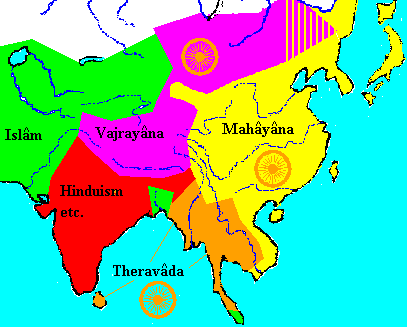In the past, students began to learn English in the first year of junior high school. Starting in 2001, English teaching programs were initiated from the fifth grade of elementary school. Additionally, the MOE (Ministry of Education) planned to start English instruction from 3rd grade in 2005. Taipei, the capital city of Taiwan, instituted the teaching of English courses beginning in the first grade of elementary school. Students take the English class twice a week and each time is for 45 minutes. What’s more, some students also take the private English classes after school.
English teacher positions in the elementary school now are very competitive in Taiwan. The exam for becoming official teachers is not easy to pass or after passing the test the chance to work in elementary school is very limited. Take my friend, Jenny for example, she passed the test to take English teachers required courses at college, however, after she finished the whole classes. She can’t find any school to teach. She has no option but to work in cram school. Therefore, many official teachers can't find the vacancy to teach at the public or private elementary school.
I remembered I started to learn English since I were in the 7th grade. At that time, English teaching focused more on Grammar Translation approach. Nowadays, as the Communicative Language Teaching has come out. More and more textbooks are complied based on this approach. Furthermore, the textbooks are not standardized from elementary to junior high school. The educational policy of this is to make the learning more diverse but this makes students more stressed since they have to prepare as many different versions of textbooks to pass the entrance exam.
- Aug 29 Wed 2012 14:35
Subject: Becoming multilingual~~
- Aug 29 Wed 2012 14:33
Subject:First Meeting~~
How do you do?
When I had started to learn English in junior high school, the first lesson of the
English textbook is about greeting such as" how are you?", "hello" and "hi" these
- Aug 29 Wed 2012 14:32
Subject: expression of gratitude~~
This is sociolinguistics class-my reply to the Discussion board.
In order to learn the native culture of gratitude in the shortest time, I will have three stages to follow the instruction of gratitude. The time of each stage is flexible to tailor to end in 30 minutes. For the first stage, I will compare the C1 and C2 respectively. Then, I will focus on the native culture and illustrate the different functions of gratitude.
An understanding of how culture shapes the language is primary significance for these 6 businessmen. In order to make sure their understanding of the disparate functions of gratitude, initial 10 questions of multiple choices will be practiced and discussed together. For the second stage of lectures, video for realizing the authentic use of gratitude will be played. Then, I will have 6 businessmen separate into 3 groups for role playing and simulation such as expressing in response to receiving a gift, favor, reward, or service. Have them use thanking formulas to express their gratitude as much as possible.
- Aug 29 Wed 2012 14:29
Q:Who is the best speaker of my native language??
Q:Who is the best speaker of my native language??
A:I would like to say my mom is the best speaker to me.
Actually, my native language is Taiwanese. However, after I had started to study
in the elementary school and we were forced to speak Chinese at school
- Aug 29 Wed 2012 11:19
Sutra on Generating the Supreme Aspiration of Bodhisattvas~~《發起菩薩殊勝志樂經》~~Bu-74
Lecture on the Dharma using a variety of gentle and kind
words and explanations to make the audience feel happy
to hear it.
- Aug 28 Tue 2012 10:55
The Imperial Edict of Emperor Yong Zheng--《雍正皇帝上諭》--Bu-13
The Imperial Edict of Emperor Yong Zheng
All the Three Teachings (Confucianism, Buddhism and Taoism) have the
capacity to help people be enlightened in China because all Three
Teachings derive from the same original source. Their teachings run
- Aug 27 Mon 2012 11:13
Our Own Acts~~
Our Own Acts
We do not what we ought;
What we ought not, we do;
And lean upon the thought
The chance will bring us through;
- Aug 25 Sat 2012 14:19
Daily Buddhism Chart~~
- Aug 25 Sat 2012 14:04
四眾佛子共勉語The guide-lines for Buddhists~~
四眾佛子共勉語The guide-lines for Buddhists
-
we should always live with the joy of practicing the Buddha’s teachings and meditation.
時時心有法喜,念念不離禪悅。
-
We try to improve our character and build a pure land on earth.
提昇人的品質,建設人間淨土。
-
We believe in the Buddha, learn the Dharma and respect the Sangha, because the triple gem is our guide forever.
信佛學法信僧,三寶萬世明燈。
-
The busy make the most of time; the diligent enjoy the best health.
忙人時間最多,勤勞健康最好。
- Aug 23 Thu 2012 16:08
Man proposes, God disposes. ~~謀事在人,成事在天~~
Man proposes, God disposes. ~~謀事在人,成事在天~~
Meaning: Human beings can make any plans they want, but it's God that decides their success or failure.
Note: Man (noun) = human beings in general | propose (verb) = suggest; put forward (an idea or plan) | dispose (verb) = decide what happens [mainly poetic] | Also seen as: "Man proposes, but God disposes."
Origin: This proverb is a translation from "The Imitation of Christ" by the German-












